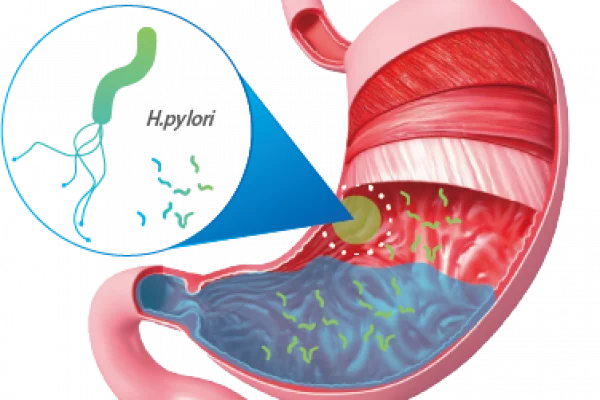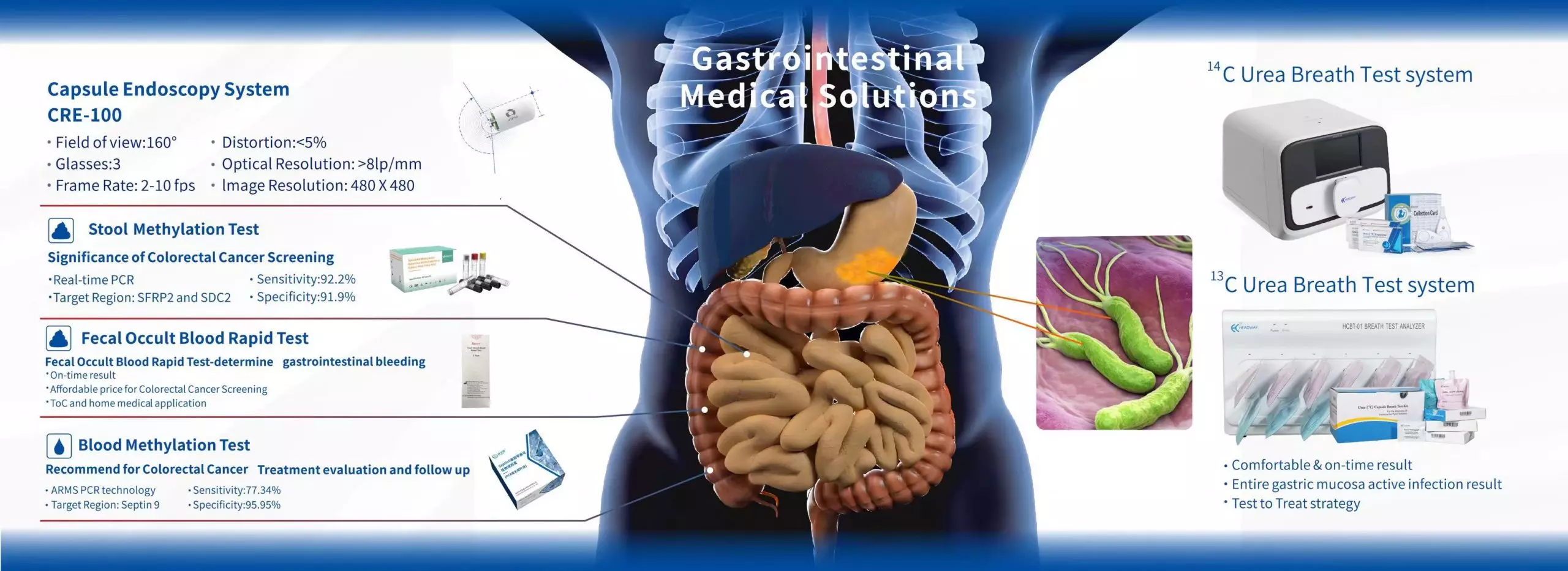Helicobacter pylori (H. pylori) is a gram-negative, microaerophilic, and spiral-shaped bacterium that can survive in stomach acid. It is one of the most widespread pathogens globally, infecting millions of people. Following proper Helicobacter pylori treatment guidelines is crucial.

Table of Contents
Togglepylori: The Basics

This bacterium lives in the human stomach and has flagella for movement through stomach mucus. It produces urease enzymes. This neutralizes stomach acid and establishes chronic infection in the stomach lining. Without intervention, this infection can persist for decades.
H. pylori infection causes serious health issues. It inflames the stomach lining. This leads to gastritis and ulcers. Long-term infection raises stomach cancer risk. It can also cause nutrient absorption problems. Following Helicobacter pylori treatment guidelines proves helpful. It ensures the bacterium doesn’t disrupt normal digestion.
Common Symptoms After H. pylori Infection
Let’s explore both typical and special symptoms.
Typical Symptoms
These relate to stomach inflammation and damage:
- Abdominal pain
- Bloating and excessive gas
- Nausea
- Vomiting (in severe cases)
- Loss of appetite
- Frequent burping
- Bad breath
- Weight loss for no apparent reason
Special Symptoms You May Be Concerned About
Some people experience less common symptoms. These often prompt questions about H. pylori’s broader effects on the body. They influence Helicobacter pylori treatment guidelines.
1. Does H. pylori Cause Diarrhea?
Yes, sometimes. It can happen if inflammation spreads beyond the stomach.
2. Can H. pylori Cause GERD?
It’s a complex relationship. Some research suggests H. pylori might protect against Gastroesophageal reflux disease (GERD). Yet treating H. pylori sometimes worsens GERD symptoms. Each case needs individual evaluation.
3. Can H. pylori Cause Weight Gain?
Some patients report weight gain with H. pylori infection. This isn’t directly caused by the bacterium. It may result from appetite or metabolism changes.
Transmission and Recurrence of H. pylori Infection
Person-to-person contact is a major cause. Contaminated food or water is also a common contributor. Helicobacter pylori treatment guidelines encourage understanding these pathways.
1. Is H. pylori Spreadable?
Yes, it is contagious. It spreads through oral-oral routes. This includes kissing or sharing food. Household transmission is common. Risk is highest in crowded conditions with poor sanitation.
2. Can H. pylori Come Back?
H. pylori can recur after treatment. Recurrence rates vary by region. Reinfection involves a new strain. Preventive measures and proper Helicobacter pylori treatment guidelines reduce recurrence risk.
Helicobacter Pylori Treatment Guidelines: Scientific Eradication
Medical guidelines for the treatment involve three main steps:
1. Testing
Doctors use several methods to diagnose H. pylori. Non-invasive options include Urea Breath Tests with Helicobacter pylori test kit solutions. Blood tests and stool tests are also common. Blood tests detect antibodies but not active infection. Invasive methods require endoscopy with biopsies. Currently, both 13C and 14C Urea Breath Tests are highly accurate.
Learn more: How to Conduct H. pylori Diagnostic Tests?
2. Treatment
There are standard Helicobacter pylori treatment guidelines. They include triple or quadruple therapy. Triple therapy combines two antibiotics with a PPI. Quadruple therapy is different. This Helicobacter pylori eradication treatment adds bismuth for effectiveness.
3. Confirmation of Eradication
Doctors recommend testing a few weeks after treatment. The Urea Breath Test is preferred. It shows if bacteria were eliminated. Stool tests also work well. Confirmation prevents unnecessary retreatment.
Long-term Risks and Prevention
There are serious long-term health risks. Helicobacter pylori treatment guidelines encourage understanding these risks for proper prevention.
How Long Does It Take H. pylori to Cause Cancer?
H. pylori doesn’t cause cancer quickly. The process can take decades. It starts with chronic inflammation and can lead to atrophic gastritis. Intestinal metaplasia may develop next. This can progress to dysplasia and eventually, cancer may form.
Daily Prevention Measures
Simple habits reduce H. pylori infection risk. These practices protect families:
- Practice good hygiene. Wash hands before meals and after bathroom use
- Drink clean water and avoid sharing utensils
- Eat properly cooked food
- Screen high-risk children. Early detection prevents complications
- Get regular testing
Headway’s Urea Breath Test Solutions
At Headway, we provide reliable H. pylori diagnostic solutions. We focus on breath detection innovation and have the resources to perfect these tests. Our Urea Breath Test solutions include:
Ø Gastrointestinal Medical Solutions
We offer comprehensive gastrointestinal screening solutions. Recommended by most Helicobacter pylori treatment guidelines, these systems detect problems early. The key highlights include:
- 13C and 14C Urea Breath Tests to detect H. pylori with high accuracy
- Capsule endoscopy shows small intestine areas that other methods miss
- Fecal methylation testing screens for colorectal cancer non-invasively
- Blood-based screening detects cancer-associated methylated genes

Ø UBT for Evaluation for HP Eradication
Our UBT solutions confirm H. pylori eradication effectively. Aligning with Helicobacter pylori treatment guidelines, they provide precise results. Patients trust our testing accuracy. The key characteristics include:
- High sensitivity. Detects even patchy H. pylori colonization
- Reliable results. Works when biopsy tests fail
- Versatile application. Works after gastrectomy or medication use
Ø Urea Breath Test (UBT) for Children
We understand children’s unique testing needs. Our UBT solutions are kid-friendly and align with Helicobacter pylori treatment guidelines. The key features include:
- Age-appropriate design. Made for children ages 3-11
- Non-invasive procedure and fast results (~30 minutes)
- Global presence. Used in major children’s hospitals worldwide
- Gold standard accuracy. High detection rate for children
Conclusion
H. pylori infection affects millions worldwide. It causes various digestive problems. Left untreated, it increases stomach cancer risk. Proper and reliable testing is the first step toward treatment. At Headway, we are committed to fighting H. pylori. Our advanced UBT solutions provide accurate, comfortable, and convenient testing and work for both adults and children. Visit our website to explore our complete range of H. pylori diagnostic solutions.

